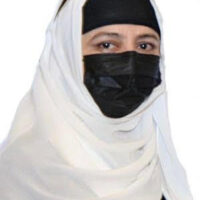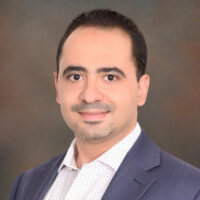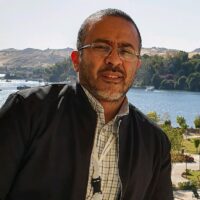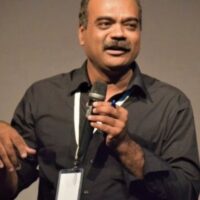IEEE SM Sponsors
- Home
- Become a Sponsor
- IEEE SM Sponsors
Workshops are organized as part of the 2026 IEEE International Conference on Smart Mobility IEEE (SM'26).
The workshops at IEEE (SM’26) bring together top thought-leaders and pioneers from industry and academia to exhibit and discuss their latest development and deployment results, as well as scientific and technical advances in the fields of smart mobility systems and services.
Accepted Workshops
High penetration of Electric Vehicles is of a great concern in many countries. Utilization of EVs on large scale has not been achieved yet due to many reasons such as high cost of batteries, and insufficient number of public fast charging stations. However, the investment in EV industry and EV charging hubs have considerable opportunities and look feasible in many countries, which can lead to the satisfactory commercial acceptance of EVs and gradual substitution of conventional vehicles.
The purpose of this workshop is to provide an opportunity for researchers from academia and industry to present their research works related to some EV enabling technologies.
The workshop also aims to attract representatives from industry and government to discuss the investment opportunities in these new technologies and the possible ways to overcome the existing challenges. Some recommendations and guidelines can be concluded from the workshop as well.
Technical Topics:
- EV Charging Schemes.
- Topologies of Power Electronic Converters.
- Control Techniques of PE Converters.
- Battery Charging Strategies.
- Future Trends: PV Stations and Energy Buffers.
- Real Time Simulation (RTS) and Hardware-in-the-Loop (Hil) Prototyping.
Non-Technical Topics:
Current situation of EV market and commercial acceptance in KSA including:
- EV Charging Stations and Service Providers.
- Technical Specifications and Concerning Codes.
- Investment Opportunities and Feasibility Studies.
- Readiness of Educational Programs for the Era of EVs.
If you want to contribute to this workshop contact Dr. Mohamed via Email.
The advancement of AI, IoT, automation, cloud and edge computing allowed the ships to be fully controlled miles away from the shore or navigate fully unmanned without the need for human intervention. The operating system on these ships can monitor the performance and health of their engines making marine operations safer and cost efficient. This workshop will provide a venue for presenting and discussing the latest state-of-the-art technologies and applications of autonomous and remotely operated unmanned ships and its implications on the marine industry and on the Sustainability Development Goals (SDGs).


The creation of smart cities can benefit from artificial intelligence (AI) in a variety of ways because this technology enables the development of intelligent and effective services for the citizenry, such as real-time monitoring from municipal security cameras, control over the use of public services, and monitoring of transportation data. The creation of analytical models is motorized and technicalized through the use of data analysis. It is a branch of artificial intelligence (AI) that is based on the idea that machines can comprehend and learn from data, spot patterns, and meet requirements to make decisions with minimal human involvement. When models are exposed to new data, the iterative nature of machine learning (ML) is important since it allows for independent and autonomous adaptation.

Prof. Ahmad Taher Azar
Research professor, College of Computer & Information Sciences (CCIS), Prince Sultan University, Saudi Arabia.
Leader of Automated Systems & Soft Computing Lab (ASSCL), Prince Sultan University, Saudi Arabia. Faculty of Computers and Artificial Intelligence, Benha University, Egypt

Smart Mobility in Open Radio Access Networks
In this workshop, the technical audience is introduced to the rapidly growing ecosystem of Open Radio Access Networks (O-RAN), in which radio network equipment, including radio and baseband processing units, has disaggregated hardware and software, well-defined open interfaces for interoperability, and virtualized/containerized network functions which efficiently run on commercial-off-the-shelf (COTS) processing as well as newly designed white-box (open) solutions. 5G O-RAN network architecture will be explained, including the newly introduced RAN intelligent controller (RIC) functionality that enables RAN-native artificial intelligence via rApps/xApps and hosted on an O-Cloud. A global market view of the growing ecosystem of O-RAN service providers will be covered, followed by the different use cases defined as technical priorities by mobile network operator (MNO) alliances, including the O-RAN Alliance and the Telecom Infra Project (TIP). Success stories of initial Open RAN implementations across the globe, operator commitments, as well as regional efforts will be covered, with open research directions highlighted to the targeted audience of researchers and innovators.
Developing World Class Innovations in Mobility
The audience will understand how to increase the probability of developing successful innovations. The mobility sector poses unique challenges and how to deal with them. This will include examples and connects to the real world. The unique connection between Innovation and customers will also be covered.
Important Dates
15
January, 2023
Solution Proposal Submission
28
February, 2023
Notification of Acceptance
19-21
March, 2023

Welcome to IEEE SM'26 Sponsors
Join us at IEEE SM’26!
We will be looking forward to receiving your submissions,
Kindly promote the IEEE (SM’26) to interested individuals and communities in your vicinity.
Best regards, and looking forward to seeing you at the IEEE (SM’26) in September!
IEEE (SM) Team





















